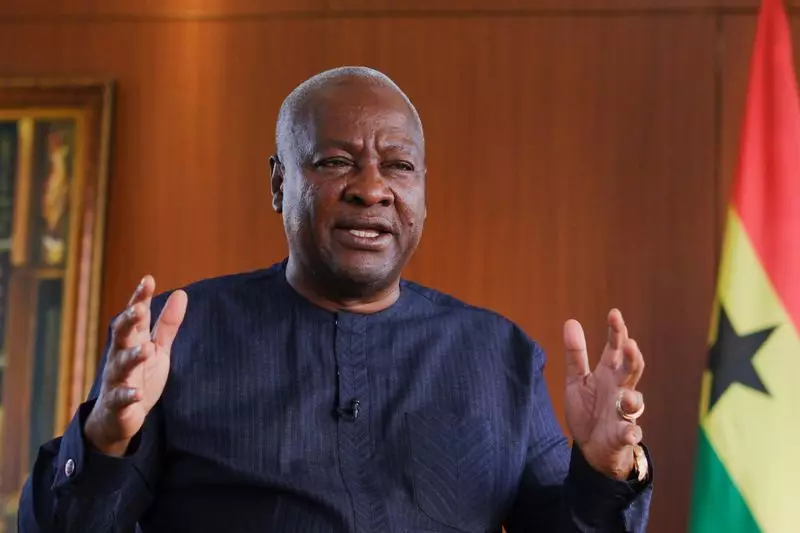In recent years, Ghana has faced significant economic challenges, culminating in what many are calling the worst economic crisis in a generation. As the nation grapples with soaring inflation and currency depreciation, the newly elected President, John Dramani Mahama, has emerged as a pivotal figure in steering the country toward recovery. Mahama, who previously served as president from 2012 to 2016, has been given an opportunity not only to address immediate financial concerns but also to implement long-term strategies to strengthen Ghana’s economy.
The dire economic conditions reflect the struggles of key sectors, particularly cocoa and gold, which are vital to the nation’s financial health. In light of these challenges, Mahama’s commitment to reassess the $3 billion rescue package with the International Monetary Fund (IMF) presents a critical opportunity for economic reform.
Rather than discarding the existing IMF agreement established by his predecessor, President Nana Akufo-Addo, Mahama has signaled an approach characterized by pragmatism and flexibility. His focus is on renegotiation—not to abandon the program, but to adapt it to better address the reality of Ghana’s economic state. This nuanced strategy allows for necessary adjustments while maintaining a constructive relationship with the IMF.
In his discussions about the program, Mahama indicated a need to scrutinize and rectify aspects of the deal that may contribute to excessive governmental expenditure. He has positioned himself as an advocate for fiscal responsibility, suggesting that if the government intends to seek tighter budgets from citizens, it must also implement austerity measures within its own ranks, particularly at the presidential level.
One of Mahama’s explicitly stated priorities is to combat the rising cost of living, which has become an acute issue for many Ghanaians. With inflation rates notwithstanding, the president-elect has promised to prioritize effective economic policies aimed at stabilizing prices and restoring faith in the local currency. Economic instability is often the result of multiple feet of mismanagement, hence, Mahama’s reference to the “multiplicity of taxes” within the existing IMF framework illustrates his understanding of how overly burdensome taxation can stifle business growth.
Relieving these pressures will require deft maneuvering through fiscal policy and potential renegotiation with stakeholders to achieve a more business-friendly environment, ultimately stimulating economic recovery.
Another focal point for Mahama is the energy sector, which he described as the ‘sick man’ of the national economy. The persistent power outages have had a destructive impact on daily life and business operations across the country. Mahama’s intent to develop sustainable energy solutions marks an essential aspect of his readiness to confront economic disenchantment.
Collaboration with the IMF for a revised deal might reveal new pathways for investment in energy infrastructure, which could bolster not only power supply but also job creation within one of the nation’s most critical sectors. A formidable energy system is requisite for Ghana’s industrial growth and elevating the nation’s economic stature on the global stage.
Mahama’s administration signals a return to governance that emphasizes accountability and transparency in the management of state resources. His pledge to combat wasteful expenditures, alongside a call to action for a collaborative approach toward economic challenges, evokes a sense of optimism among Ghanaians yearning for substantive change.
In the wake of widespread discontent due to economic hardships, Mahama’s leadership could potentially transform this disillusionment into a proactive force driving the country towards sustainability and inclusive growth. The successful navigation of this crucial phase rests on the execution of innovative economic strategies and collaboration across sectors.
As Ghana stands at a crossroads, the leadership of President Mahama presents an opportunity for revisiting policies that have faltered, while unveiling a strategic plan that not only addresses immediate concerns but also lays the groundwork for future resilience. The focus on energy reform, fiscal responsibility, and constructive engagement with international partners like the IMF will be key indicators of the success of his administration. With proactive measures and a committed governance approach, Mahama can restore hope and foster a competitive economic environment for all Ghanaians.

